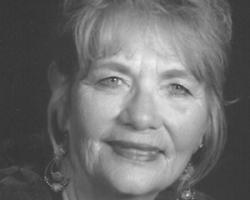Many high school seniors will be making their journey to college in the fall of 2011. Most have no clue what they want to be “when they grow up.” My advice to these seniors is not to worry. Studies show most students change their majors three-four times before settling on a specific field. Experts feel that a well-rounded liberal art school will give guidance to freshman and sophomore college students enabling them to make a more informed decision starting their Junior year.
With this being said, according to the Ferris State University Career Institute for Education and Workforce Development most students make career decisions with little or no guidance outside the home. Some do not even have this discussion with their parents. As a result students are choosing course studies giving little or no thought about existing career openings and business needs.
Students tend to select careers based on their personal likes and interests. These are important factors, but job availability and salary are equally important.
Take, for example technology. Not many students are interested in this career. But studies show the demand for technology-adept graduates continues to grow and those who choose high-tech careers have the potential for high incomes.
When populations change there is often a potential for job growth. As the Baby Boomers reach retirement age there will be an increased need for gerontology and geriatric professionals. Attitude, medications and science are prolonging the average age of the American seniors.
By the middle of the 21st century, one in five Americans will be over 65 and 15 to 18 million persons will be over the age of 85.
Expertise in the knowledge of aging and the elderly will be in high demand. The study of aging combines information from different areas of study such as biology, sociology and psychology.
Public policy humanities and economics are also important components.
Students who choose this field can work in community, human services and religious organizations; health care and long-term care institutions; federal, state and local government agencies; retirement communities; academic and other educational and research settings; professional organizations; and business and industry. Because services are needed for both the active and those who are ill and need assistance this field has a wide variety of positions available.
There are many opportunities available to students. The object is to find a profession that will be both rewarding and lucrative. My suggestions to students are:
• Talk to your parents, counselors and teachers about career opportunities.
• Keep an open mind regarding the many different occupations available.
• Take advantage of any opportunity to serve as an intern in any field.
• Work part time to get a better understanding of the work environment.
• Visit your high school guidance counselor’s office and career planning center often and find out about different careers.
This is both an exciting and scary time for seniors. Prepare by getting good grades. Persist by researching the different avenues available to you and following through on your college searches. Produce the best possible person you can be.
Prepare … Persist … Produce
If you follow this advice your choices for the future will be fulfilling.
Margene Walz is an academic and athletic counselor for Quest College Counseling.
For more information, call (562) 280-0460 or e-mail QuestCC@hotmail.com.




